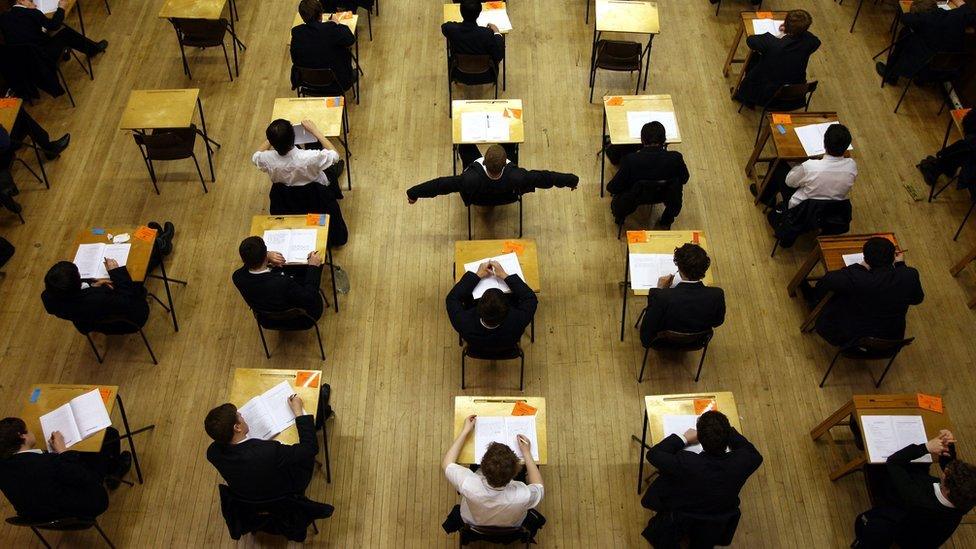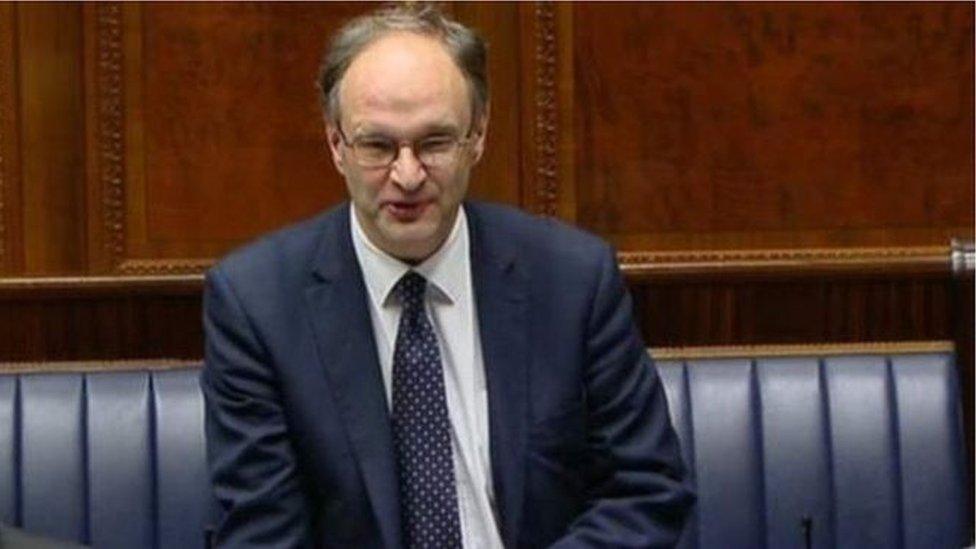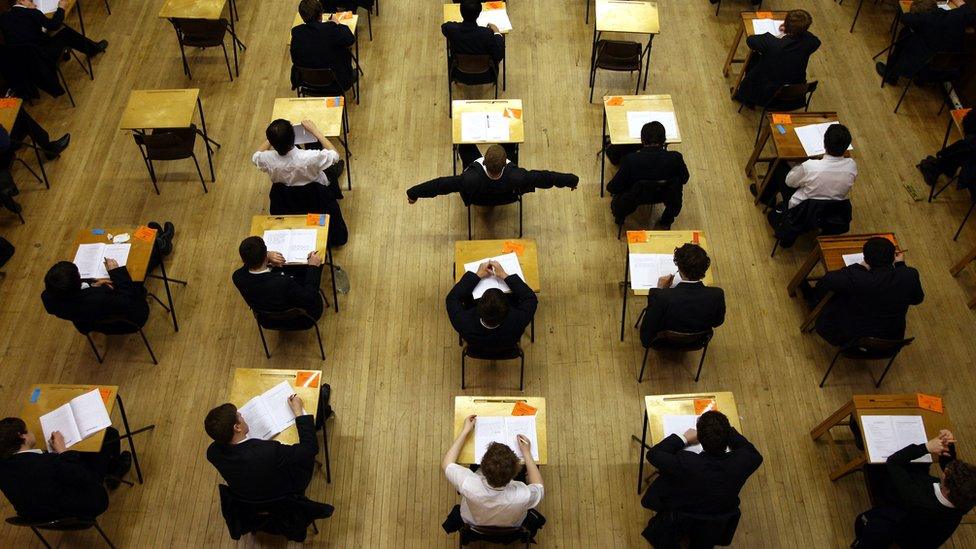Transfer test: Thousands of NI children receive results
- Published

Thousands of children across NI have received the results of their post-primary school transfer tests.
There are 16,257 entrants in total for the AQE and Post-Primary Transfer Consortium (PPTC) tests in 2019-20.
Although numbers sitting the tests have been rising in recent years, that is slightly fewer than the 16,507 entrants in 2018-19.
Most grammar schools have been using one or both tests to select pupils since 2008.
That was when the 11-plus exam run by the Department of Education was scrapped., external
AQE said 8,637 pupils had entered their test this year.
The PPTC said 7,620 pupils had applied to sit their test - set by GL Assessment - in 2019-20.
Sat both tests
It is also estimated about 2,000 children sat both the AQE tests and the PPTC exams.
Although the pupils who sat the tests receive their results on Saturday, they will not know which post-primary school they will transfer to until the end of May.
As demand for places in some areas is likely to be high, the Department of Education has asked schools to apply for extra Year Eight places in 2020.
In 2018, the two separate testing organisations unveiled draft plans for a common test.
However, no final agreement has been reached and there is no firm date for a single test yet.
The proposal has also met with some opposition.

Education Minister Peter Weir has backed a single selection test
Education Minister Peter Weir has, however, backed a single test.
In a statement to BBC Radio Ulster's Talkback programme on Friday, he said he wanted to see a more "straightforward" test.
"Whatever anyone's views on the subject, it clearly makes sense to try to avoid pupils being put through two systems, leading to five individual exams," he said.
"I understand that our selective schools are working together to examine options for a single system and this is something I hope to pursue over the coming months."
Mr Weir also expressed his continuing support for academic selection.
However, others are strongly opposed to the system and research suggests that, in general, pupils from better off backgrounds are likely to benefit most from it.
- Published24 January 2020
